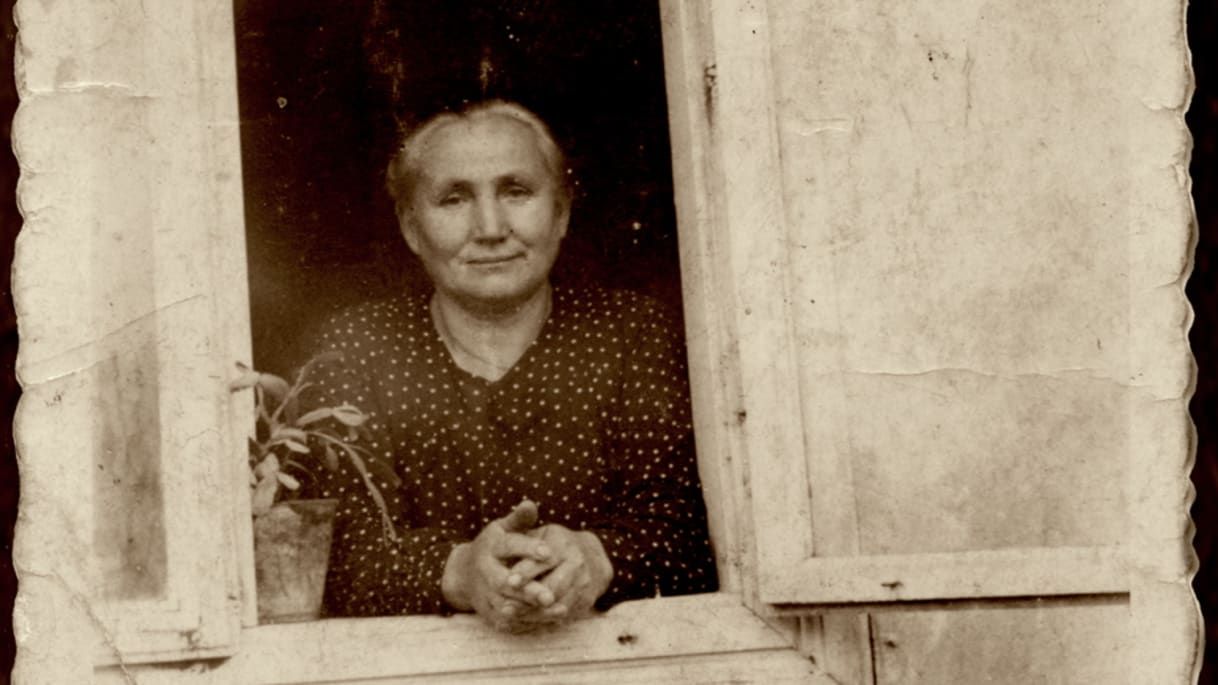
Chana and Moshe Malc were traditional Jews living in Sokal, Poland (modern-day Ukraine) with their two young children when the Nazis occupied their town in 1941. Immediately, local residents were emboldened to persecute their Jewish neighbors and violent attacks became common. A squalid, overcrowded Jewish ghetto was established in 1942 and the Malcs were taken from their home and forced to live there.
The Germans began rounding people up, a thousand at a time, and sending them from the ghetto to death camps. Frantically, the Malcs found an attic where six-year-old Chaim Malc could hide, and then Chana, Moshe and their toddler Lifsha, growing desperate, took refuge in a dank cellar with 30 other Jews. They were able to rescue Chaim from his solitary hiding place and bring him to the cellar, but unfortunately Lifsha wouldn’t stop crying. Tragically, a Jew who was forced by the Nazis to search for hidden Jews heard Lifsha’s wails and took her from her family and handed her over to a German soldier, making sure that the other Jews in the cellar wouldn’t be discovered.
Devastated by the loss of their precious daughter and aware that their own days in the ghetto were numbered, the Malcs knew their best chance of survival was to find a place to hide outside the ghetto. They managed to sneak out, but where could they go? They knew one Polish woman, Franciszka Halamajowa, and with nowhere else to turn, they went to her home and pleaded for help. Chaim Malc later explained how the family knew Franciszka. “You never know when you do a favor for someone what it will bring eventually. In 1936, my father and grandfather were traveling with a horse and wagon and they stopped for a woman who was waiting at the side of the road with a lot of parcels – this was how they met Franciszka.”
A kind-hearted woman who was grateful for the Malcs’ help several years before, Franciszka and her young adult daughter Helena warmly welcomed the Jewish family into their humble home. They furnished a small attic room above the pigsty for the Malcs and provided for all their needs. Franciszka’s son Wilmus helped them procure extra food and supplies for the hidden Jews. Franciszka and her family were fully aware of the risks they incurred by secretly sheltering the Malc family; the penalty for hiding Jews was execution on the spot. Franciszka was a devout Catholic who believed that God put the Malcs in her life so that she could help them.
Soon, members of the extended Malc family also moved into Franciszka’s cramped attic, including Moshe’s mother, sisters and niece. A few months after that, Moshe’s brother Shmelke joined them, along with the four-person Kindler family, bringing the total of attic dwellers to thirteen. They had to keep quiet, and spent the long days praying, writing, and playing chess. Moshe Malc kept a diary in Yiddish, his native tongue. Amazingly, young Chaim later said, “There were high spirits in the hideout in the attic.”
Dr. Kindler was an experienced local physician who provided medical care when needed to the thirteen people in the tiny attic. Sadly, Chaya-Dvora Malc, Moshe’s sister, died of typhus and was buried under the apple tree in Franciszka’s yard. Dr. Kindler’s medical acumen prevented anybody else from getting sick, and in fact saved their lives in another way. Franciszka’s neighbors found out about the hidden Jews and threatened to report them to the Gestapo. In exchange for free medical care from Dr. Kindler, the neighbors kept their mouths shut. Meanwhile, the Polish residents of Sokal were abandoning the city because of the fear of enemy attacks.
After the Jews had been safely hidden for twenty months, Franciszka was devastated when Nazis suddenly turned up at her front door. They didn’t know about the hidden Jews; they were there to build radar equipment on the roof of Franciszka’s home. Certain that the end was near, the Jews actually contemplated committing mass suicide rather than be sent to a Nazi death camp. Miraculously, the Germans suddenly abandoned the project – perhaps because the Russian army was closing in on Sokal.
One month later, the city was liberated and for the first time in almost two years, the Malcs and Kindlers went outside. They were surprised to learn that Franciszka had actually hidden three more Jews inside her home, and they helped her cook meals and do laundry for the Malcs and Kindlers. Chaim later remembered the monumental day of liberation. “We emerged on a sunny day in July. We could hardly talk or walk. I was eight years old.” The thirteen Jews hidden by Franciszka were among only 30 of Sokal’s 6000 Jews to survive the war.
The Malcs went from Sokal to a Displaced Persons camp in Germany, where they had another son, Nathan, and then they immigrated to the United States. Franciszka never told anybody about her brave actions during the war, and went to her grave as an unknown hero. In 1984, Franciszka (posthumously) and Helena were honored as Righteous Among the Nations by Israeli Holocaust Memorial Yad Vashem.
Moshe Malc’s diary survived the war to become a family treasure. Sixty-four years after they were liberated, Moshe’s granddaughter Judy Maltz made a feature-length documentary about Franciszka Halamajowa, the brave and pious Polish woman who saved three Jewish families. The movie is called “No 4 Street of Our Lady” – Franciszka’s address. It wasn’t until after the movie came out that Franciszka’s own grandchildren learned the extent of what she did.
For saving 16 Jews from the Nazis, we honor Franciszka Halamajowa as this week’s Thursday Hero.
Get the best of Accidental Talmudist in your inbox: sign up for our weekly newsletter.